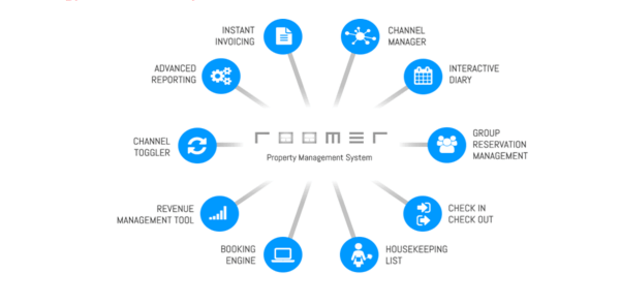advertisement
Technology, Travel: why hotels can’t afford to be left out
At Accor Hotels, guest check-in begins two days ahead of time; with a personalized SMS reminding the guest to prepare…

At Accor Hotels, guest check-in begins two days ahead of time; with a personalized SMS reminding the guest to prepare their check-in nitty gritty for a smooth and faster process. On the morning of the check-in date, this technology enabled service sends a welcome note with a warm reminder to the guest that the hotelier awaits them at their destination while offering useful tips such as transport to the hotel, car park access codes etc.
Unlike ages ago when guests would walk in to spend a whole hour queuing up to fill forms with details of their intended stay, the check in and check out process is now characterized by flexibility and exceptional technology oriented customer service. The industry has moved in to answer to a new demand for updated technology mostly wound around smartphones and apps.
Take for instance the global chainKempinski; while the chain can be said to be a luxury brand in every way, they have gone beyond standardization to personalization by equipping every single room with an iPad that enables guests to place their orders without stepping out of their rooms or stretching a hand to reach room service. In any case, who wants to go through numerous extensions while the spa and your favorite table are only a click away?
advertisement
Customer’s satisfaction and appreciation with hotel services and amenities has evolved through the years; with a key importance on the need to integrate technology with the human touch/voice. This interest is observed to go beyond the need for free and fast Wi-fi to more advanced check in and check out processes that include keyless rooming and in-room service that has relegated the switchboard to 20th Century.
In terms of booking, Estelle Verdier-Watine, the Managing Director for Jovago, an online hotel booking firm cites that apart from the convenience achieved, the whole process is now expedited to the speed of a click as opposed to numerous phone calls or even mail exchange.
This new wave of technology is however not restricted to the five stars; more and more boutique chains and guest houses are moving from the traditional procedures and embracing basic tech-supported check in and check out as well as in-room entertainment, keyless rooming and the use of EPOS (Electronic Point of Sale). Keyless systems seem to be the Holy Grail for any hotel courting technology; take for instance Tribe Hotel in Nairobi that has created a keyless check-in feature via a Bluetooth enabled software.
advertisement
This again as the MD explains is a step further in enhancing the customer experience, “you no longer need to worry about lost keys; but of course this means you keep your smartphone close and charged” A small price to pay if you ask me.”
Another important observation why hotels need to embrace and grow with the ‘internet of things’ is that more than 50% of the traveler demography is made up of millennials; a group that is said to have the largest combined purchasing power as well as a high affinity for technology and its application. Apart from their spending power, a major lower segment of this group are parents to the (yet to be named) generation which almost doubles the potential market in this bracket. For those who are yet to settle as parents, they will more often than not bear influence on where their old folks stay, thus, the impact of the millennials purchasing power is echoed by two generations.